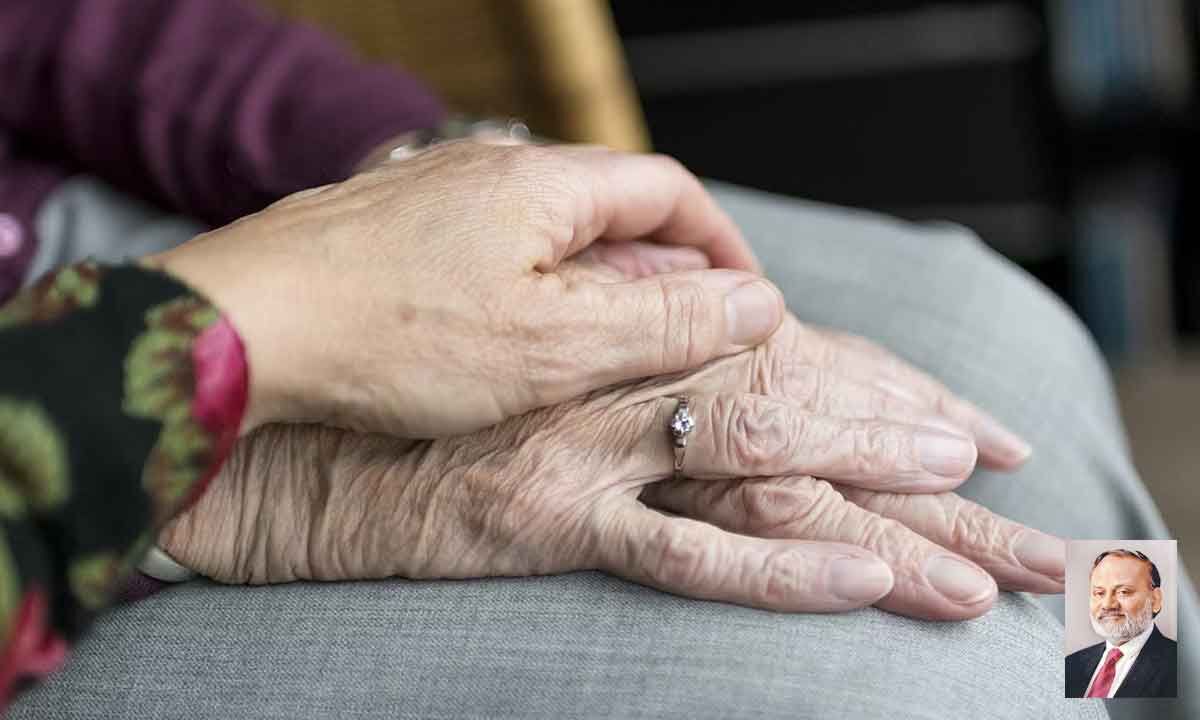One morning, an unusual incident occurred in a usually happy and carefree family. The father emerged from the bathroom after bathing, but to the shock and bewilderment of his family, he was not wearing any clothes. This unexpected sight caused the entire family to be thrown into a state of shock and stress. His wife, misunderstanding the situation, stopped talking to him while the children were utterly stunned.
In a bold move, one of the family members gathered the courage to confront his father about the incident. He questioned and admonished his father, “What is this, Dad? Do you have the sense to come out of the bathroom fully dressed? How awkward and embarrassing!”
The father, seemingly bewildered, looked at his family member and replied, “When did I come out like that? I have never done such a thing before. I don’t think you should accuse me of actions I never took. Can anyone do something like that? Go on, leave me alone with such false accusations.”
Later, this family member reached out to me to discuss the incident. I reassured them that this behaviour could be attributed to cognitive impairment, a common issue that affects individuals as they age. I gave them the perspective that there was no need to worry excessively.
With this understanding, the family members were able to relax. They decided to seek professional help and consulted both a psychiatrist and a neurologist to explore potential treatments for the cognitive changes the father was experiencing.
Some symptoms of dementia:
• Memory problems, particularly remembering recent events.
• Increasing confusion.
• Reduced concentration.
• Personality or behaviour changes.
• Apathy and withdrawal or depression.
• Loss of ability to do everyday tasks.
Mental health issues among older adults are a significant concern but often overlooked or misunderstood. Ageing can bring about various challenges that can contribute to mental health problems. Some common mental health issues that affect older adults include:
1. Depression: Depression is a common mental health issue among older adults. Health problems, loss of loved ones, social isolation, and changes in life circumstances can trigger it. Depression in older adults might manifest as persistent sadness, lack of interest in activities, changes in appetite or sleep patterns, and feelings of hopelessness.
2. Anxiety: Anxiety disorders, including generalized anxiety disorder, phobias, and obsessive-compulsive disorder, can affect older individuals. Health concerns, financial worries, and changes in daily routines can exacerbate anxiety.
3. Loneliness and Social Isolation: Many older adults experience loneliness and social isolation due to the loss of friends and family members, retirement, and physical limitations. Loneliness can contribute to depression and other mental health issues.
4. Grief and Loss: Older adults often face multiple losses, including the loss of loved ones, health decline, and changes in living situations. Grief and bereavement can impact mental health and well-being.
5. Cognitive Disorders: Conditions such as dementia and Alzheimer’s disease are characterized by cognitive decline and memory impairment. These disorders can profoundly impact an individual’s mental health and overall quality of life.
6. Substance Abuse: Some older adults turn to alcohol or prescription medications to cope with stress, loneliness, or pain. Substance abuse can worsen mental health problems and complicate physical health issues.
7. Sleep Disorders: Insomnia and other sleep disorders become more prevalent with age. Poor sleep can contribute to mood disturbances and cognitive difficulties.
8. Personality Changes: Older adults might experience changes in personality and behaviour due to neurological changes, health issues, or the side effects of medications.
9. Adjustment Issues: Major life changes such as retirement, relocation, or changes in family dynamics can lead to feelings of uncertainty and anxiety.
10.Elder Abuse: Older adults who experience abuse, neglect, or exploitation by their family members can develop mental health issues due to their trauma.
11. Stigma and Shame: Some older adults might hesitate to seek help for mental health issues due to stigma and the belief that mental health concerns are a sign of weakness.
It’s important to note that mental health issues among older adults are not a natural consequence of ageing. They are medical conditions that can be effectively treated and managed. If you or someone you know is struggling with mental health issues in old age, seeking professional help from a qualified mental health provider is crucial. Treatment options might include therapy, medication, support groups, and lifestyle changes to promote mental well-being.
(Email your concerns: [email protected] and hansmarathonhyd@gmail. com, Phone Number: 9390771469, www.younme.co)




































